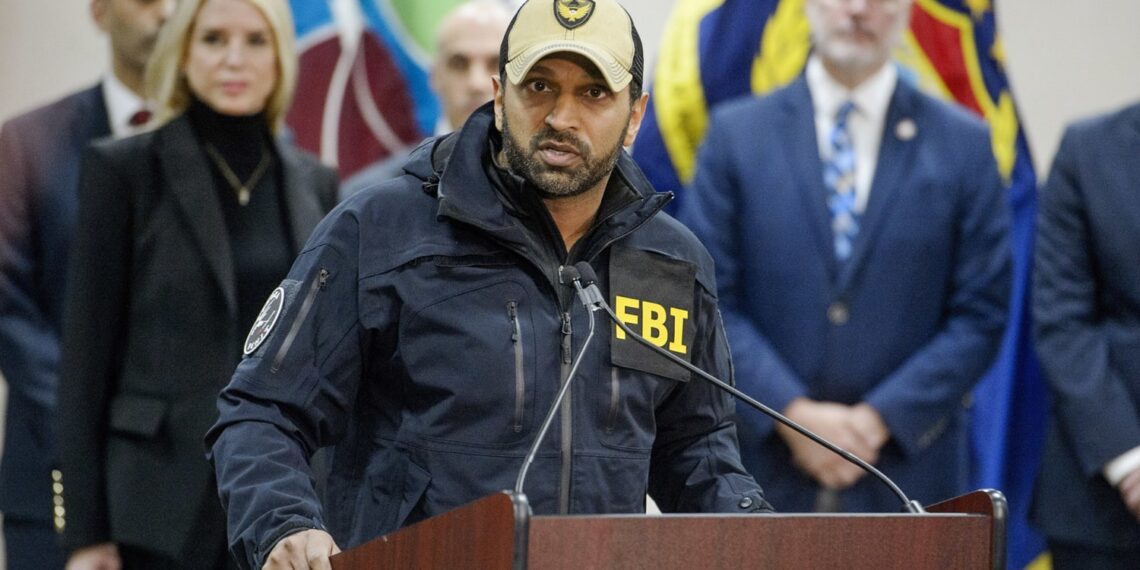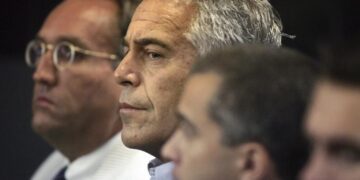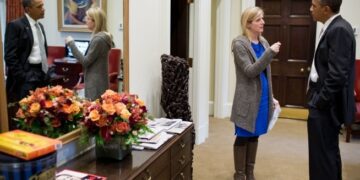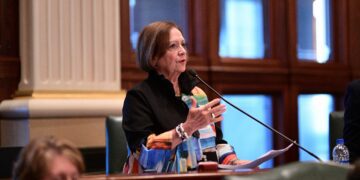By Illinois Review
A bizarre political stunt in Illinois has now escalated into a potential federal case, after a formal request was submitted to FBI Director Kash Patel on Monday, urging the Bureau to investigate what may be a deliberate act of mail fraud tied to a local campaign.
The controversy erupted on November 16, when political figure and candidate Julie Cho claimed she received a postcard “from” the Darren Bailey for Governor campaign. But within minutes of the postcard appearing online, major inconsistencies raised serious concerns – concerns that now point directly to 18 U.S.C. § 1341, the federal mail fraud statute.
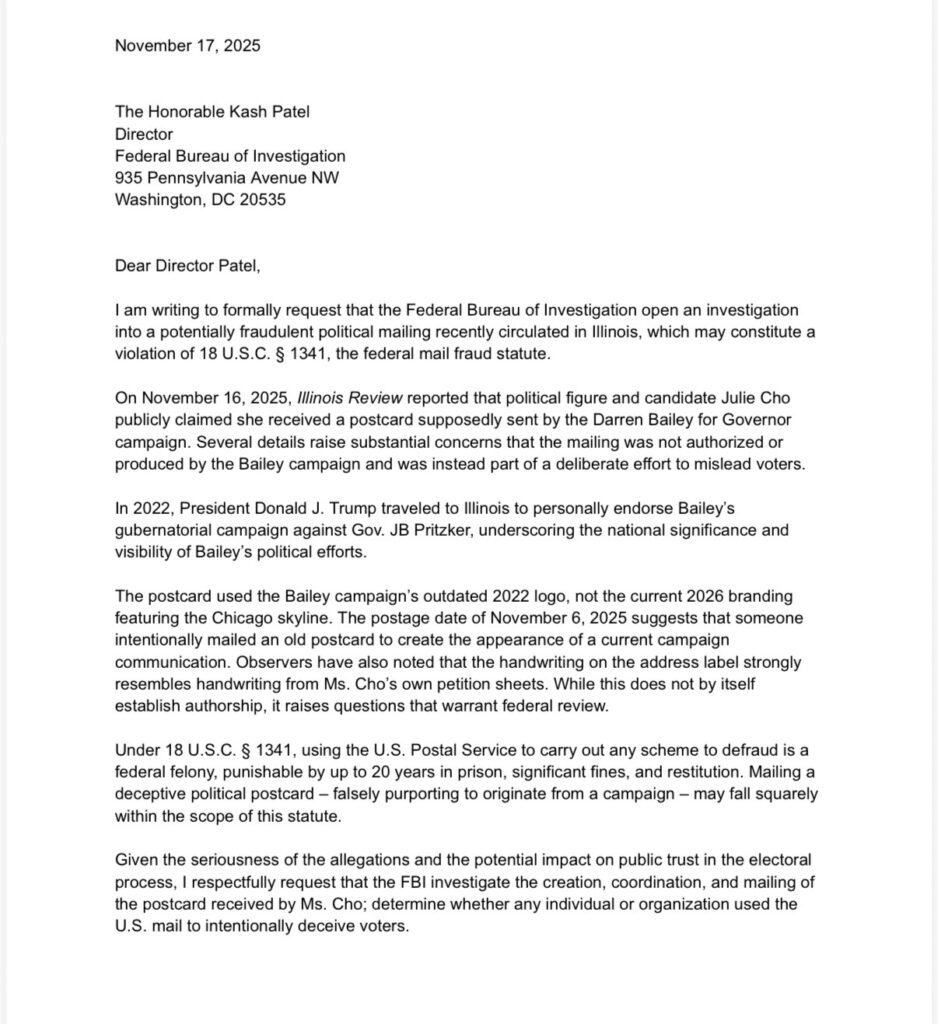
The postcard does not match any official Bailey campaign materials. Instead, it uses Bailey’s outdated 2022 logo, not the current 2026 branding that features the Chicago skyline. That alone would be suspicious – but the postage date makes it far worse.
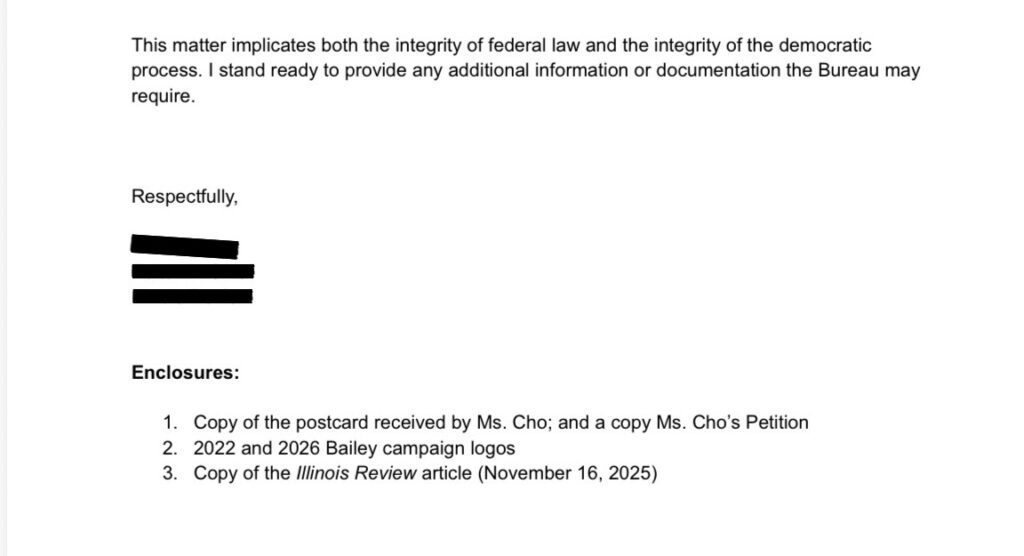
The card was mailed on November 6, 2025, suggesting someone dug up an old postcard and intentionally sent it in an attempt to make it appear as though the Bailey campaign had mailed it recently.
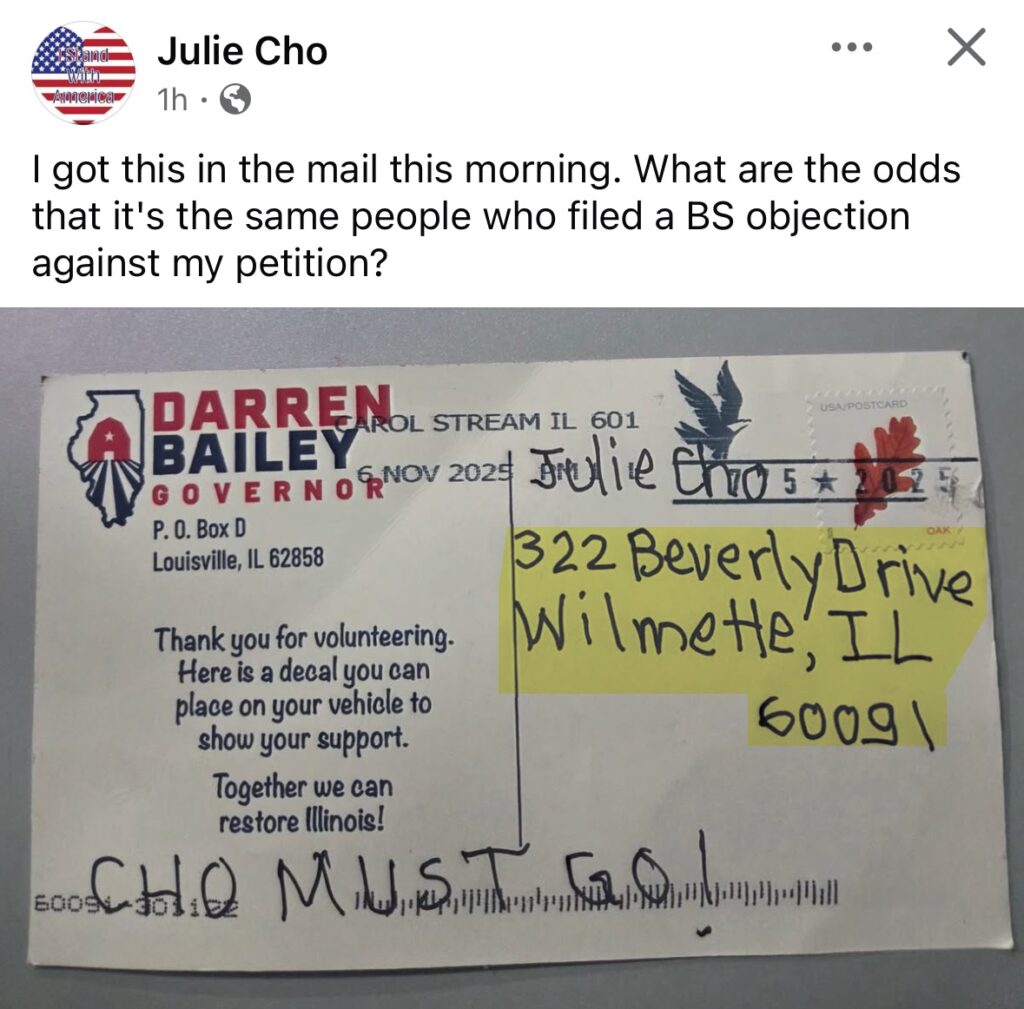
Even more troubling, observers noticed that the handwriting on the address label closely resembles handwriting found on Cho’s own petition sheets. While handwriting similarities do not prove authorship, they raise questions that cannot be ignored – especially during a moment when the Bailey family is mourning the devastating loss of their son, daughter-in-law, and two young grandchildren.
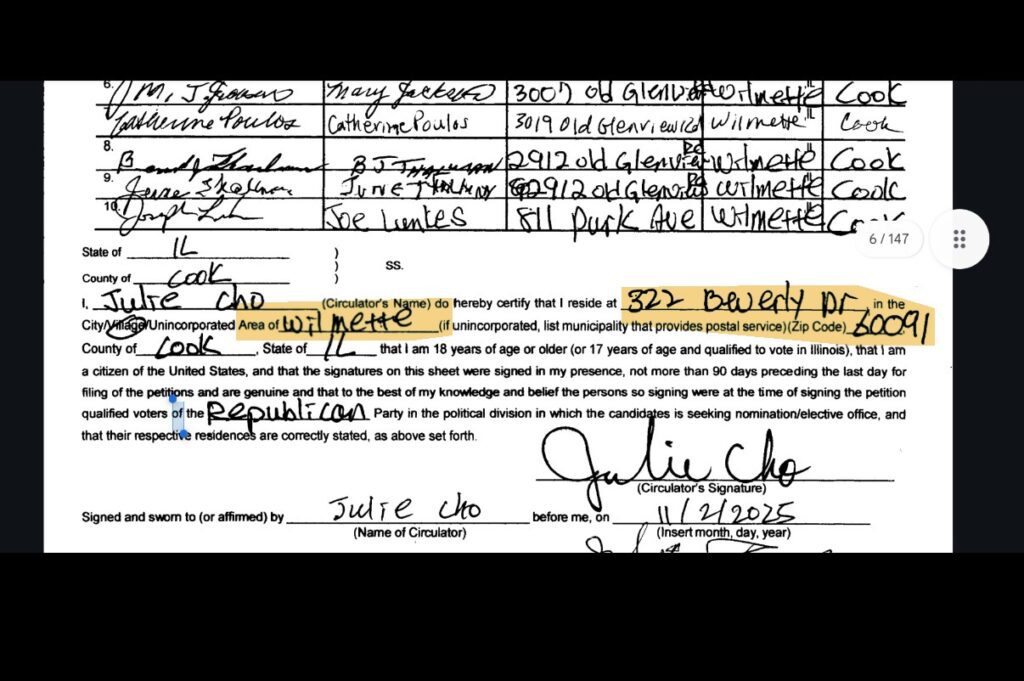
If someone staged a fake campaign mailing during a family tragedy, the moral implications are disturbing. But the legal implications may be even more serious.
Under 18 U.S.C. § 1341, using the U.S. Postal Service as part of any scheme to defraud is a federal felony punishable by up to 20 years in prison, along with fines and restitution. Mailing a deceptive political communication intended to mislead voters fits squarely within the scope of this statute.
The formal request to the FBI — shared exclusively with Illinois Review — underscores the gravity of the situation, stating:
“Given the seriousness of the allegations and the potential impact on public trust in the electoral process, I respectfully request that the FBI investigate the creation, coordination, and mailing of the postcard received by Ms. Cho; determine whether any individual or organization used the U.S. mail to intentionally deceive voters.”
The request submitted to the FBI asks the Bureau to investigate how the postcard was created, who coordinated the mailing, who wrote the address label, and who physically sent it through the mail. It also seeks to determine whether any person or organization intentionally attempted to deceive voters by staging a fraudulent campaign communication.
Political dirty tricks are nothing new in Illinois – but weaponizing the U.S. mail to mislead voters crosses from unethical behavior into potential criminal conduct.
If a person or group staged this mailing, it wasn’t simply a stunt. It may have been a felony.


